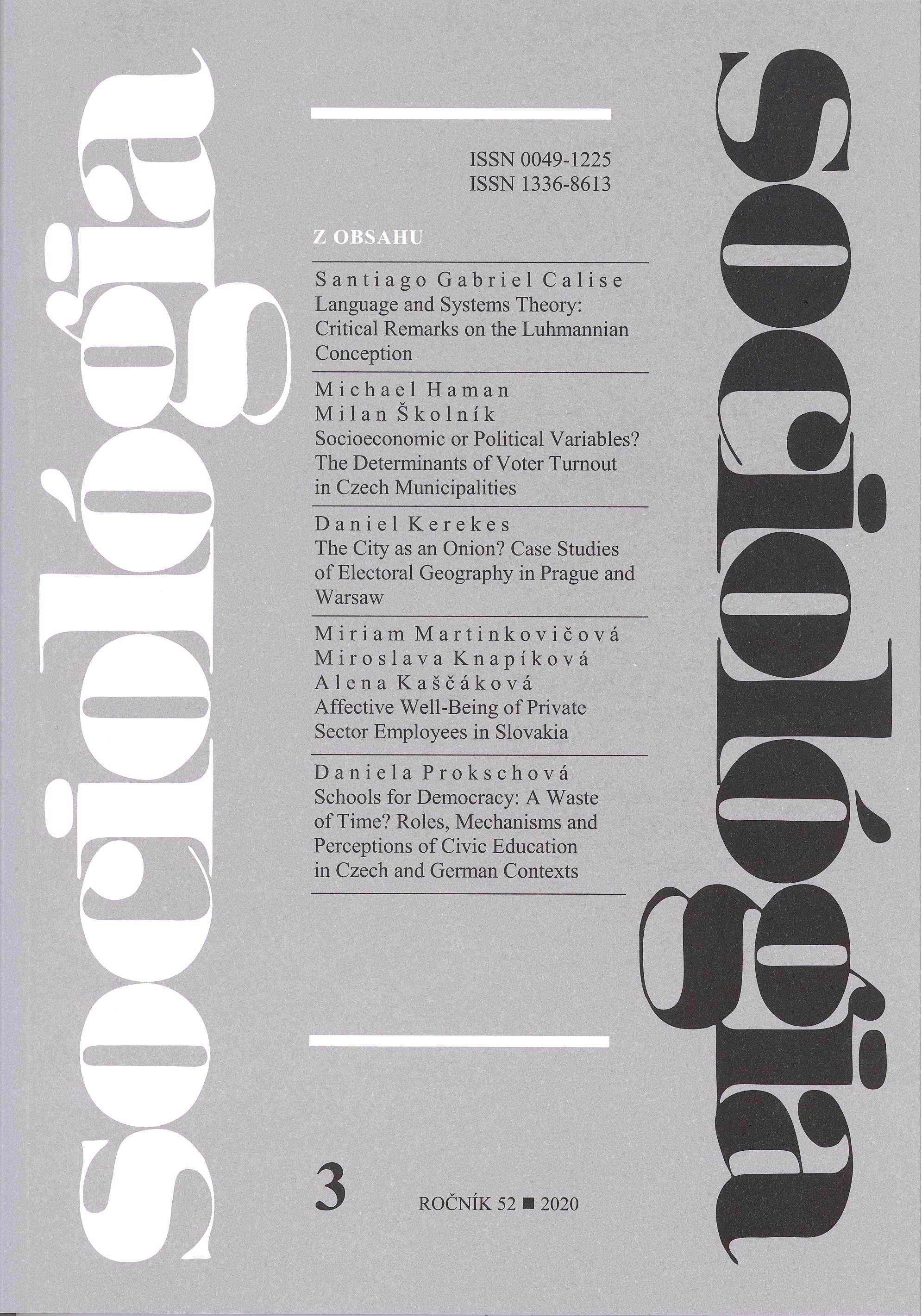Affective Well-Being of Private Sector Employees in Slovakia
Affective Well-Being of Private Sector Employees in Slovakia
Author(s): Miriam Martinkovičová, Miroslava Knapíková, Alena KaščákováSubject(s): Social Sciences, Labor relations, Economic policy, Management and complex organizations, Sociology of the arts, business, education, Economic development, Socio-Economic Research
Published by: SAV - Slovenská akadémia vied - Sociologický ústav
Keywords: Affective component of subjective well-being; extreme emotions; time use survey; paid work; unpaid work;
Summary/Abstract: Affective Well-Being of Private Sector Employees in Slovakia. The primary aim of the paper is to present selected results of an original representative survey of the use of time in Slovak households, in which one of the methods of determining the affective component of subjective well-being was used for the first time in Slovakia. Based on the recommendations of the harmonized research on the use of time, we identified extremely positive emotion (happiness) by the means of 24-hour monitoring of the allocation and use of time for paid work, unpaid work and leisure time during the working day and free day. For this contribution, we selected those respondents who are private sector employees. We evaluated and processed the perception of the affective component of subjective well-being (SWB) in terms of age categories of employees, gender, and household category. The research has shown that the hedonic component of SWB, meaning an extremely positive emotion, is the most common among employees in the 25-49 age group at performing unpaid work activities during the working day. Employed women perform more unpaid work and they feel more positive emotions during its performance than working men. Employees living in households with children up to 15 years of age feel more positive emotions at performing unpaid work activities than employees without young children. On the other hand, employees living in households without children (up to 15 years of age) experience more positive emotions during leisure time activities.
Journal: Sociológia - Slovak Sociological Review
- Issue Year: 52/2020
- Issue No: 3
- Page Range: 273-299
- Page Count: 27
- Language: English

